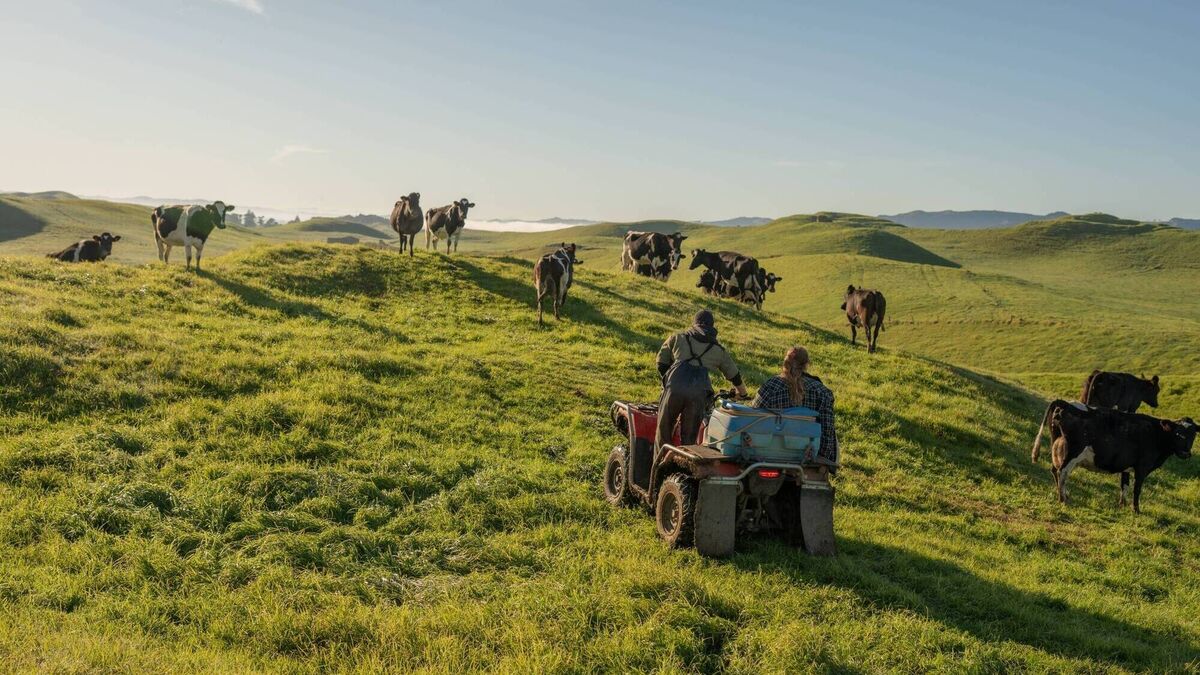Both countries are, of course, relatively lightly industrialised, but have big agriculture and food sectors. Relatively low populations also result in high emissions per capita.
Scratch deep enough and you will find that few subjects get livestock farmers going as much as methane from their herds. It's an especially sensitive matter in New Zealand and Ireland.
Almost half of New Zealand’s greenhouse gas emissions come from agriculture, mostly methane.
In Ireland, 37.8% of emissions are attributed to agriculture, again, mostly methane.
Both countries are, of course, relatively lightly industrialised, but have big agriculture and food sectors. Relatively low populations also result in high emissions per capita.
New Zealand’s agricultural emissions have been falling since 2014, mainly because of reducing livestock populations. Irish emissions from agriculture fell since 2021, but are not on course to achieve the climate action plan of 25% reduction by 2030.
As for New Zealand, there is a national target to lower methane by between 24% and 47% by 2050.
Changes of government have greatly affected pressure on farmers to reduce emissions, with climate action more of a priority for "green" politicians when they share power.
The methane spotlight has also moved somewhat onto the world's record production of oil, gas, and coal, said to be the source of nearly one third of methane emissions from human activity
The fossil fuel supply offers the greatest potential for immediate reductions in methane emissions, according to the International Energy Agency, which works with governments and industry on more secure and sustainable energy.
However, New Zealand farmers now fear government demands for a 24% reduction in methane emissions by 2050. It's a similar target to Ireland's 25%, but with 20 extra years to achieve it.
Nevertheless, the country's farmers have erupted in anger even though the target is at the bottom of the 24% to 47% methane reduction range set by the three-party coalition government that came to power in 2023.
Paris Agreement
Federated Farmers, the leading independent rural advocacy organisation, said it will reject the 24% target.
The organisation's meat and wool sector chairman, Toby Williams, called for a national conference debate on whether New Zealand should withdraw from the Paris Agreement on climate change.
He said the existing climate policy is already undermining farmers’ profitability and threatening the viability of rural communities, with New Zealand losing almost 1m sheep a year and — in the last seven years — more than 260,000 hectares of productive farmland planted with pine trees.
Forests and other land uses absorb an estimated 26% of New Zealand's emissions, but Williams isn't interested.
He says emissions reductions are driven by one thing and one thing only: Shutting down farms and putting them into pine trees
"Is that really the future we want for our country?" he asks.
Results of a recent survey of 1,460 New Zealand farmers indicated that 95% think that reducing livestock methane won't impact global climate change.
Perhaps even more ominously, 93% would refuse to feed methane inhibitors to their animals. Dietary supplementation with these methane-suppressing chemicals plays a big role in various countries' plans to reduce emissions from agriculture.
However, farmers in the survey are uneasy about their impact on livestock.
This mirrors consumer worries, reflected last year in a huge online reaction to milk processor Arla's announcement that 30 farms in Britain would trial the Bovaer feed additive to reduce emissions.
The New Zealand farmer survey findings have been questioned, not least because Methane Science Accord and Groundswell NZ are two of the groups behind it. The former was set up to promote zero taxation on ruminant methane, and the latter seeks a halt to regulations which unfairly impact farmers — which, it says, are unworkable.
However, Methane Science Accord spokesperson Helen Mandeno said the combined reach of the survey was to more than 400,000 farmers and rural supporters.
She said: "Farmers have been gaslit right from the start. Nobody has previously asked grassroots farmers for our opinion."
"This is the first chance that all farmers have been asked their opinion."
Source - https://www.irishexaminer.com













